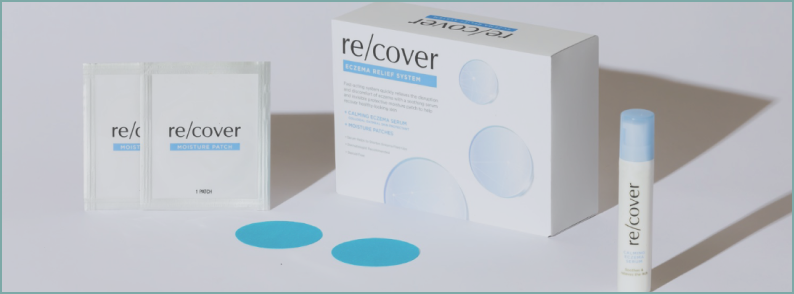10 Tips for How To Relax Before Bed

When you don't know how to relax before bed or struggle to stop thinking about work, relationships, and the next day, you risk missing out on the benefits of a full night of beauty sleep. If you think your morning coffee will set things right, think again. Getting enough sleep is important for your body, mind, and skin! Here are some of the top things that sleep is known to impact:
- Metabolism and hormone production
- Memory and concentration
- Strength and endurance
- Circulation and blood pressure
- Inflammation and insulin resistance
- Mood and emotions
Tips for How To Relax Before Bed
If you think your sleep is less than restful, you may need to look at your sleeping habits. Not sure where to begin? Try some of these self-care routines to give yourself the love and sleep you deserve.
1. Practice Mindfulness
Learning how to improve your sleep starts with practicing mindfulness. According to many studies, individuals who take time to focus on the present moment experience less stress and anxiety than those who do not. Mindfulness exercises, including yoga, meditation or deep breathing, are known to enhance brain function and relax the body, making it an ideal part of a nightly pre-slumber routine.
2. Take a Warm Bath or Shower
The comforting sensation of warm water on your skin after a long day can certainly be relaxing, but there is science behind why a warm bath or shower can promote sleep. When you get out of the shower, water droplets on your skin will start to cool your body down. This cooling signals your brain to produce melatonin that prepares your body for sleep. Don't forget to treat yourself to a skin-softening body wash with a comforting scent and silky lather to wash away the cares of the day.
Shop Oil-Infused Body Wash
“When you get out of the shower, water droplets on your skin will start to cool your body down. This cooling signals your brain to produce melatonin that prepares your body for sleep.”
3. Enjoy a Cup of Tea
A warm cup of herbal tea can be just the thing to inspire restful sleep. Be sure to avoid caffeinated teas and opt for chamomile, lavender, passionflower, or valerian root teas. These types of tea are proven to increase the production and function of the brain's sleep-inducing neurotransmitters. Enjoy your tea about an hour before bedtime to avoid waking up during the night to use the bathroom.
4. Apply a Soothing Moisturizer
As you wind down after a long day, treat yourself to a gentle massage using a luxurious moisturizer your skin can drink up while you sleep. For additional relaxation, try one of our hydrating body butters with a triple butter blend of softeners, subtly infused with delicately fragrant and calming lavender, ideal for the most relaxing bedtime routine.
“For additional relaxation, try one of our hydrating body butters with a triple butter blend of softeners, subtly infused with delicately fragrant and calming lavender, ideal for the most relaxing bedtime routine.”
5. Listen To Soothing Music
Sleep experts find that listening to soft music with a slow beat before heading to bed can dramatically decrease the amount of time it takes for you to fall asleep. The ideal playlist should include tunes with about 60 beats per minute, which is similar to a typical resting rate.
6. Start a Journal
Difficulty sleeping is often due to anxiety around past or future events. Journaling is a perfect way to control your thoughts and gain a fresh perspective when your mind is racing. Writing things down provides a healthy channel for releasing pent-up anxiety and resolving negative or conflicting emotions that keep you from falling asleep.
7. Go To Bed at the Same Time Every Night
Your body has an internal message center that tells you when it is time to start winding down for bed. Going to bed at a different time every night can cause this delicate system to malfunction, overriding your body's natural inclination to fall asleep. This can keep you awake at night and groggy during the day. The best way to prevent this is to follow a consistent sleep schedule. Doing so will train your body to slow down at the appropriate time and help you drift off to sleep.
8. Set The Right Mood
Your bedroom should be a sleep sanctuary. Create an environment that is soothing and relaxing, where you can go to feel safe and removed from your daily cares. Start with a comfortable mattress, bed, and pillows and add soft, breathable sheets and blankets. Don't forget about the sleep-disturbing blue light that your cell phone emits. Try to keep your phone out of your bedroom to avoid scrolling late into the night. Lastly, keep your room as dark as possible by turning off any lights and blocking any light from your windows.
9. Resist Electronics Use
Experts recommend turning off electronic devices at least one hour before bed. This includes computers, cell phones, and tablets. The blue light that these devices emit can disrupt your circadian rhythm, which tells your body when it should be asleep and awake. Checking emails or texts before bed also increases the risk of re-engaging your thoughts, which can trigger a faster heart rate, muscle tension, or other physical changes that may keep you alert and unable to fall asleep.
10. Set Boundaries
Prioritizing your nighttime self-care means not allowing unrelated intrusions to compromise your routine. Avoid activities that can energize you, absorb your thoughts, or confuse your body’s internal clock before bed, including:
- Accepting phone calls
- Reading emails
- Performing household chores
- Paying bills
- Vigorous exercise
- Eating fatty or sugary snacks
Instead, use the time before you drift off to sleep to focus on the rituals and routines that encourage your mind and body to relax.
When To See a Sleep Professional
If you’re doing your best to fall asleep and still find yourself lying awake at night, it might be worth talking to a sleep doctor, also known as a somnologist. In talking with them, they can help you find the cause of your sleep problems and help you find additional solutions. You might consider this approach if you experience several straight weeks of insomnia or other sleep issues. If bodily discomforts, including heartburn or restlessness and prickling leg sensations, prevent you from falling asleep, a sleep expert may offer a remedy that provides relief.
Our Top Sleep Tips
Adequate and restful sleep is an essential component of good health and healthy-looking skin. If you think you aren't getting the quality and quantity of sleep you need, remember our top tips to help you relax before bed:
- Go to bed at the same time every night following a warm cup of herbal tea
- Take a warm shower and use a soothing body wash to cleanse your skin
- Take a warm shower and use a soothing body wash to cleanse your skin
- Create a dark, cozy sleep sanctuary with a comfortable bed, sheets, and clothes
- Stop social and work activities at least one hour before bedtime
- Remove electronic devices from your bedroom and stop using them one hour before going to bed
- Wear comfortable, breathable clothing and avoid harsh fabrics such as wool and polyester.
- Consult with an expert if you need additional support















